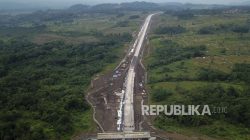Embracing Artificial Intelligence as a Collaborative Force
The Director-General of the National Information Technology Development Agency, Kashifu Inuwa, has urged Nigerian business leaders to perceive artificial intelligence (AI) as a partner in innovation rather than a threat to human employment. His insights were shared during a high-level panel session at the BusinessDay CEO Forum Nigeria, which took place in Lagos.
Support kami, ada hadiah spesial untuk anda.
Klik di sini: https://indonesiacrowd.com/support-bonus/
Inuwa emphasized that AI should be viewed not just as a tool but as a thought partner and a collaborative instrument capable of helping organizations achieve new levels of productivity. He highlighted the potential for AI to uncover novel business models and enhance global competitiveness. “I see artificial intelligence not just as a tool, but as a thought partner,” he said. “The key is to position yourself at the centre of this collaboration.”
He pointed out that while AI may outperform humans in many tasks, it will not replace individuals. Instead, it will replace the skills and processes currently relied upon to perform work. This perspective calls for a shift in how businesses approach AI, encouraging them to integrate it into daily operations by assigning specific roles or personas based on context.
The Role of AI in Business Operations
According to Inuwa, the smart approach for businesses is to assign AI clear functions, such as acting as a virtual lawyer, doctor, co-founder, or advisor. This strategy makes human interaction with AI more purposeful and productive. “AI can help generate ideas, analyze data, and offer perspectives that humans may overlook,” he explained. “The businesses that will thrive are those that understand how to work alongside AI, not against it.”
Support us — there's a special gift for you.
Click here: https://indonesiacrowd.com/support-bonus/
Despite his optimism about AI’s potential, Inuwa cautioned against assuming that AI is always accurate or ethical by default. He stressed the importance of vigilance and critical evaluation when deploying AI systems. “This is where the government’s role becomes critical,” he said. “As regulators, we need to create policy labs where we can test AI technologies in safe, controlled environments. We must evaluate them thoroughly to ensure they are safe, ethical, and reliable.”
A Collaborative Approach to Regulation
NITDA has adopted a collaborative approach to AI regulation, working closely with innovators, startups, and the private sector to experiment with emerging technologies. Inuwa described this co-creation model as essential for developing evidence-based policies that support innovation while safeguarding public interests. “Rather than rushing to regulate based on fear, we collaborate with the private sector to experiment, learn, and build together,” he added.
This approach allows the agency to establish clear benchmarks informed by lessons from these experiments, shaping future frameworks, guidelines, and regulations. “We co-create solutions, then use the lessons from these experiments to establish clear benchmarks that will inform future frameworks, guidelines, and regulations,” he said.
Balancing Innovation and Social Responsibility
Inuwa noted that Nigeria is setting an example for balancing innovation with social responsibility. The goal is to create an environment where businesses can innovate responsibly, ensuring that society as a whole benefits from new technologies. “Our aim is to create an environment where businesses can innovate responsibly, while ensuring society as a whole benefits from these new technologies,” he said.
The BusinessDay CEO Forum Nigeria brought together senior business executives, entrepreneurs, policymakers, and thought leaders from across the country. The event served as a platform for discussions on scaling businesses, building resilience, and leveraging technologies like AI, digital payments, and data analytics to drive Nigeria’s future growth.






